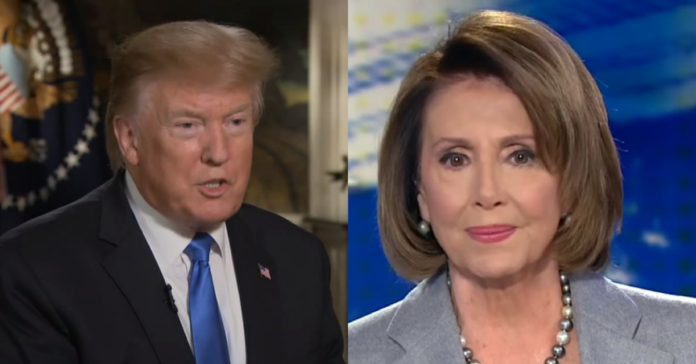President Trump has enormous powers as commander in chief. Take a look at what Lincoln did if you ever wonder about what a president can and cannot do.
The nations chief executive has enormous responsibility and with that responsibility comes power, at least according to constitutional scholars like Bill Barr, Brett Kavanaugh and Neil Gorsuch.
As such, Trump has enormous latitude to work within the system to make change. Look, the fact is we are very generous and some people take advantage of that. Some people game the system and Trump is about to put an end to that with a simple change of the rules.
From Reuters: The Trump administration is considering reversing long-standing policy to make it easier to deport U.S. legal permanent residents who have used public benefits, part of an effort to restrict immigration by low-income people.
A Department of Justice draft regulation, seen by Reuters, dramatically expands the category of people who could be subject to deportation on the grounds that they use benefits.
Currently, those legal permanent residents who are declared to be a “public charge,” or primarily dependent on the government for subsistence, can be deported - but in practice, this is very rare.
The draft regulation would use a more expansive definition to include some immigrants who have used an array of public benefits, including cash welfare, food stamps, housing aid, or Medicaid.
While the plan is at an early stage, might not become official government policy, and is likely to attract lawsuits, it is one part of efforts by the Trump administration to restrict legal immigration, in addition to its efforts to reduce illegal immigration to the United States.
The full possible impact is not known, but the change in policy could affect permanent residents - also known as “green card” holders - who are legally entitled to use public benefits soon after their arrival in the United States, such as refugees.
Department of Justice spokesman Alexei Woltornist said the agency “does not comment on or confirm draft regulations.”
U.S. law allows for the deportation of immigrants who have become “public charges” within five years of admission if their reason for seeking help preceded their entry to the United States - for example, if they had a chronic health condition that was not disclosed.
But due to a 1948 ruling, the deportation of immigrants for using public benefits has been strictly limited to cases in which the government has demanded payment for public services, and the person has failed to pay. Immigration lawyers said they have rarely if ever heard of someone being deported for using public benefits.
The draft rule indicates the government would override that precedent to allow for deportation of some permanent residents who have used certain public benefits within five years of admission.
For the plan to go into effect, it would be subject to public comment, after which it could be revised. Attorney General William Barr would then have to sign off on it.
The public benefits in question include Supplemental Security Income (SSI), given to disabled and older people; the Supplemental Nutritional Assistance Program (SNAP), commonly known as food stamps; Section 8 housing vouchers; many Medicaid benefits; and Temporary Assistance for Needy Families (TANF), a cash assistance program.
According to federal policy, many permanent residents do not qualify for public benefits unless they have had a green card for five years, making it unlikely they could be targeted for deportation on the basis of “public charge” even under the draft rule.
But dozens of states have looser rules - for instance, allowing pregnant women and children who are permanent residents to access Medicaid without a waiting period.
And the effort to tighten the rules could affect thousands of immigrant veterans, refugees and asylees, who are eligible to receive many benefits without time restrictions. Active members of the military would not be affected.
Administration officials had earlier indicated that the Justice Department, which oversees U.S. immigration courts, planned to issue a regulation on who can be deported for using public benefits, but its details were not previously known.
The change, if implemented, fits with broader Trump administration efforts to squelch legal immigration by transforming public-charge rules. The administration has also slashed refugee admissions and imposed a broad travel ban on citizens of several mostly Muslim countries.
The Justice Department’s draft proposal is based on a similar plan by the Department of Homeland Security (DHS) to significantly broaden the definition of what it means to be a public charge.
While DHS can decide whether to grant or deny immigration benefits, DOJ’s immigration judges can also decide whether a resident ought to be deported.
The DHS is expected soon to tighten regulations so that a “public charge” would be any foreigner “who receives one or more public benefits,” including an array of cash and non-cash benefits, such as food stamps, housing vouchers, and Medicaid.
The DOJ’s draft proposal mirrors that and also directs immigration judges to consider the use of public benefits as a heavily weighted negative factor when determining whether to admit a foreigner to the United States.
The State Department is also trying to restrict entry to the United States of people it suspects might use public benefits.

